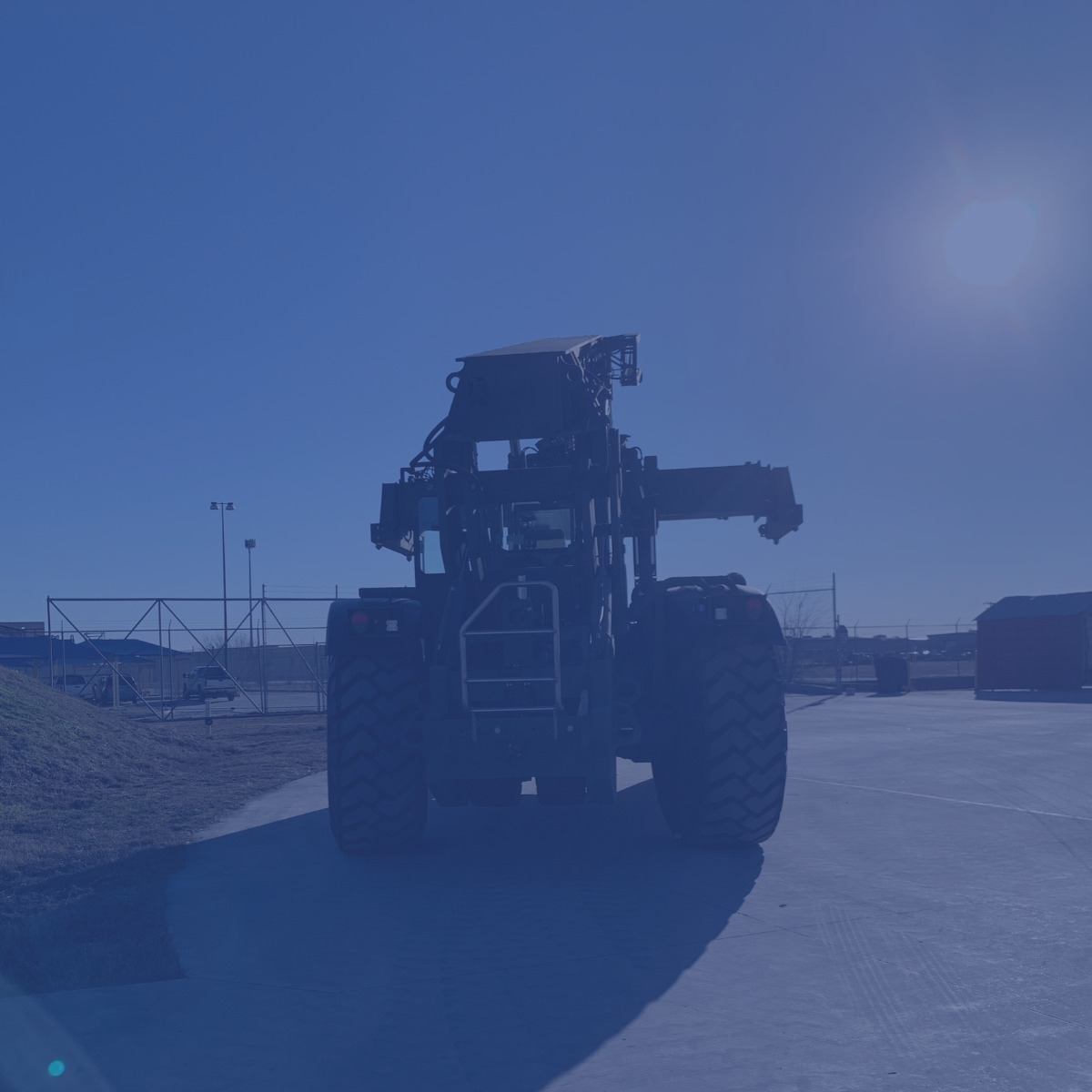When most people think of Rough Terrain Container Handlers (RTCHs), they imagine them at work in sprawling military depots. And for good reason—RTCHs are a staple in these environments, designed to lift, stack and transport heavy containers with ease across uneven surfaces, all while maintaining a safety. But these rugged machines are far more adaptable than they often get credit for. From remote disaster zones to forest clearings, RTCHs are proving their value in some of the world’s most challenging conditions. Let’s take a look at some of the surprising use cases for RTCHs.
- Disaster Zones: Speed and Stability When It Matters Most
In the aftermath of natural disasters—earthquakes, hurricanes, floods—logistics quickly become one of the biggest bottlenecks to relief. Roads are often damaged or completely impassable by traditional freight vehicles. That’s where RTCHs come in.
With all-wheel drive, high ground clearance, and container-handling capability, RTCHs can operate on debris-strewn terrain to quickly offload humanitarian supplies like food, water, and medical aid. Their ability to lift, transport, and stack fully loaded containers off flatbeds or airdropped pallets and reposition them efficiently can save critical hours in a crisis and restore safety.
- Oil and Gas Fields: Built for Harsh, Remote Worksites
Oil and gas extraction sites are typically remote, dusty, and hard to reach. RTCHs are increasingly used at these operations to move containerized housing, equipment modules, or fuel tanks across uneven desert, tundra, or marshland.
Unlike standard forklifts or cranes, RTCHs don’t require ground preparation. Their robust suspension systems and load stability controls let them maneuver heavy loads where no paved surface exists—making them indispensable in exploration zones where speed and adaptability are crucial.
- Forestry and Logging: Lifting Big Loads in the Backcountry
Forestry operations generate substantial logistical needs, especially in off-grid environments. RTCHs are being used to transport tools, maintenance containers, and even harvested logs within remote logging sites.
Because they can lift and stack containers in tight clearings, RTCHs simplify storage and mobilization, reducing reliance on multiple pieces of equipment. Their low ground pressure and articulated movement also make them less disruptive to delicate environments than one might expect.
- Humanitarian Relief: A Lifeline in Remote Regions
In global development and emergency relief efforts, NGOs and military partners frequently need to deploy critical infrastructure to hard-to-reach areas. RTCHs shine in these scenarios by delivering containerized mobile clinics, classrooms, power units, and shelter kits wherever they’re needed most.
Some organizations even maintain RTCHs as part of pre-positioned logistics hubs near regions vulnerable to conflict or extreme weather events. Their reliability, rapid deployment, and ability to handle multiple container types make them a versatile asset in any humanitarian toolkit.
Why RTCHs Are More Than Just “Big Lifts”
The reason RTCHs succeed in such varied environments boils down to one word: versatility. These machines are engineered not just for strength, but for resilience, adaptability, safety, and autonomy. They operate where traditional logistics vehicles can’t, without sacrificing safety.
As industries and governments increasingly need to “go where the work is”, the ability to bring infrastructure and supplies to challenging terrain isn’t a luxury—it’s a necessity. RTCHs make it possible.
Rough Terrain Container Handlers are no longer just tools of the military depot—they’re powerful, mobile platforms for resilience, recovery, and remote operations. At IRTC, we’re proud to support the organizations pushing these machines beyond expectations, into the places where they’re needed most.
Want to see how RTCHs could support your next operation? Contact us to learn more about fleet options and deployment support.

